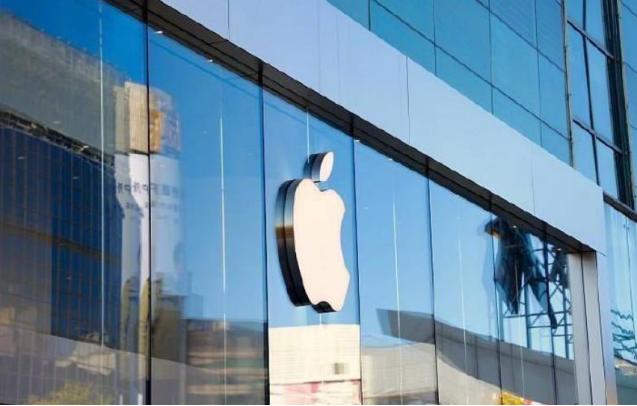
The EU digital market is about to fire the "first shot", and the target is clearly aimed at the "tech giant" Apple. In the face of the EU's recently enacted Digital Market Act (DMA), which sets new rules for fair competition and transparency in the digital market, Apple Inc., as a "gatekeeper" of technology giants, has not escaped the fate of EU accusations against its business model and market behavior. The incident marks a further step up in EU regulation of the digital market. More significantly, Apple is also likely to become the first tech giant to be charged after the EU's new digital law is launched.
According to people familiar with the matter, the EU investigation confirmed that Apple did not cover the problem, and new problems appeared, and continued to explode. One is the abuse of Apple's dominant position in the iOS App distribution market through its App Store, which enables Apple to carry out a series of actions that are considered to be abusive market dominance. For example, Apple prevented app developers from providing users with information about cheaper non-Apple Music subscription services outside of its app store, which was seen by the EU as setting unfair trading conditions and violating EU antitrust regulations.
The second is Apple's violation of the Digital Market Act, the European Union's new Digital Market Law, which requires tech companies to comply with a series of rules designed to promote fair competition in the market. Apple failed to fulfill its obligations under the Digital Market Act, for example, "Apple announced at the beginning of the year that it would allow app side-loading in the EU market - that is, allowing users to download apps in third-party app stores and naturally use other payment channels without charging additional fees, which is considered to be in violation of the relevant provisions of the Digital Market Act." It also means Apple won't receive up to 30% of the app store's revenue. To address this, Apple has done two things: for developers who continue to use the App Store, the commission rate has been reduced from (up to) 30% to 17%, and the commission rate charged by subscriptions or small businesses for more than a year has been further reduced to 10%. If Apple is found guilty of violating the law, it could be fined up to 5% of its daily turnover, which translates to just over $1 billion.
The third is the high commission Apple charges developers through the App Store, which can be as much as 30%. The commission system has been accused of over-exploiting developers and limiting market competition and innovation. In response to the entry into force of the Digital Market Law, although Apple has reduced the commission ratio, it has introduced a new form of "core technology royalties". For software downloaded more than 1 million times a year, developers will pay 0.5 euros to Apple for the first time every year. It should be noted that installing software updates also counts, so this amount is equivalent to an annual fee that app developers pay Apple on a regular basis based on the number of customers. This has also raised questions from regulators.
As a result, the EU digital market antitrust authority conducted an in-depth investigation of tech giants such as Apple, and based on the findings, made charges and fines. The EU's fines against Apple total 1.84 billion euros ($2 billion), the third largest antitrust fine ever imposed by the EU. The high fine reflects the seriousness with which the EU is taking Apple's actions. These decisions are based on sufficient factual and legal basis and are aimed at safeguarding fair competition in the market and the rights and interests of consumers. To sum up, the reasons for the EU digital market targeting Apple mainly include many factors such as Apple's abuse of its dominant market position and violation of the Digital Market Law, which together prompt the EU to take strict regulatory measures against Apple.

The global electric vehicle market in 2025 is experiencing intense turbulence. Tesla, once a disruptor that reshaped the industry landscape, is now mired in an unprecedented sales crisis.
The global electric vehicle market in 2025 is experiencing …
Recently, Chinese telecom companies Huawei and ZTE signed a…
Recently, according to Xinhua News Agency, Israel's air str…
A strongly worded report from the Equality Trust argues tha…
On November 27, 2025, Alibaba officially entered the global…
The focus of the global financial market in 2025 has always…